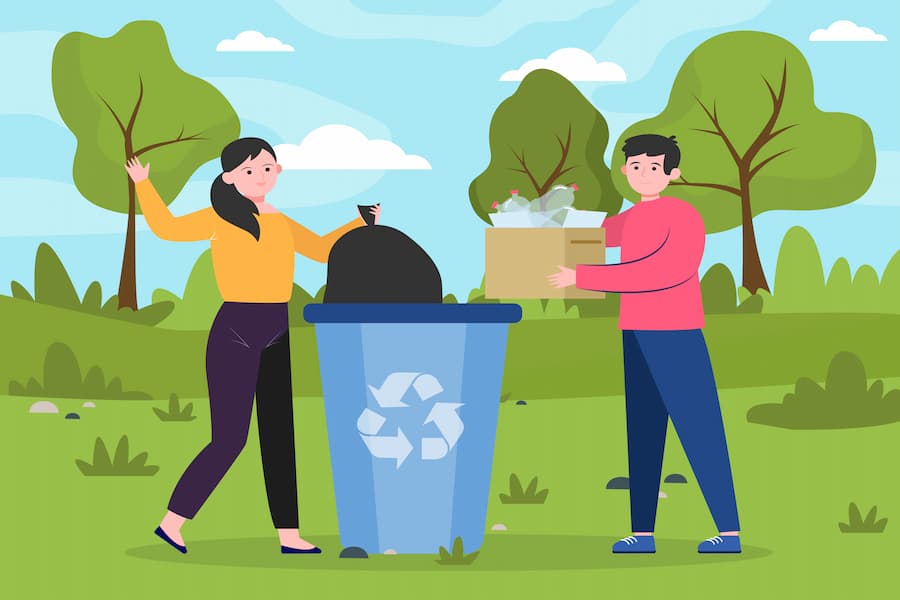


Discover why effective waste management is vital for sustainability, protecting the environment and conserving natural resources.
When it comes to saving the planet, we’ve tried everything from reusable straws to wearing questionable hemp trousers. But there’s one less glamorous hero in this green revolution that deserves a proper British round of applause: waste management. Yes, bin men and compost bins are arguably more essential to sustainability than solar panels on your nan’s bungalow.
At its core, waste management is the art and science of dealing with the stuff we chuck away. In Britain, it begins with our familiar wheelie bins – green for garden, blue for recycling, black for everything else that’s mysteriously sticky. From there, it gets carted off to facilities that sort, burn, bury, or hopefully, repurpose it. Skip hire services – Skip Hire Local, to name a handy example – play a vital role for bigger clean-ups: home renovations, garden clear-outs, or when your mum finally lets go of her ’90s wallpaper collection. These skips don’t just vanish into thin air. They’re sorted for wood, metal, rubble, plastics – and hopefully not your passport accidentally flung in during a mad spring clean. The more effectively we sort, collect, and process waste, the better we can prevent pollution, conserve resources, and protect public health – all while keeping Britain looking more Downton Abbey and less post-apocalyptic wasteland.
Now, let’s talk about the smelly elephant in the room – landfills. They’re not just a bit unpleasant; they’re methane factories. This potent greenhouse gas is 25 times more damaging than CO₂ over a century. Yikes. Good waste management helps keep organic waste – food scraps, garden clippings, and the odd biodegradable cup – out of landfills. Instead, they can be composted, turned into biogas, or used to feed worms (bless ’em). That’s a win for the environment and your flowerbeds. Moreover, incineration isn’t the dirty word it once was. Modern facilities use waste-to-energy technology, generating electricity from what can’t be recycled.
Believe it or not, rubbish is big business. Managing it sustainably can actually save money – for councils, companies, and even you. When businesses reduce packaging, reuse materials, or recycle effectively, they save on raw materials and disposal costs. That’s why so many British supermarkets now let you bring your own Tupperware (and silently judge you if it’s not glass and labelled). Local councils who run efficient recycling programmes also reduce landfill taxes – yes, we’re taxed for trash now – freeing up budgets for other community needs like pothole repairs or slightly warmer swimming pools.
If you think recycling is just about bottles and newspapers, think again. In the UK, we recycle everything from clothes to bricks. It’s not just green – it’s genius. Each tonne of paper recycled saves 17 trees. Recycling aluminium uses 95% less energy than making it new. And don’t get us started on plastic – the less virgin plastic we use, the fewer sad sea turtles we’ll see in guilt-inducing documentaries. Reuse is just as crucial. Think charity shops, Facebook Marketplace, and upcycling projects where chairs become shelves and jeans become… art, apparently. The point is, less demand for new stuff means less manufacturing, fewer emissions, and less clutter in your loft. When your skip from Skip Hire Local gets hauled away, it doesn’t just go to landfill limbo. Waste is sorted, salvaged, and sent to live another life – a bit like Doctor Who, but for materials.
The future of waste is looking… well, smarter. AI and robotics are revolutionising sorting centres, identifying recyclables with terrifying accuracy. Smart bins in cities now tell you when they’re full (and possibly judge your meal deals). Biodegradable packaging is on the rise, made from seaweed, mushrooms, and even potato starch. Imagine eating your takeaway, then composting the container – it’s the full circle of life, Simba-style. For small-scale users, local services like Skip Hire Local will continue to be vital as regulations tighten and consumer expectations rise. It’s not just about getting rid of stuff – it’s about doing it responsibly.
Visit Crivva for more interesting blogs.
